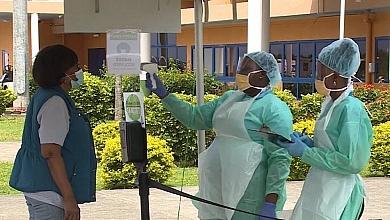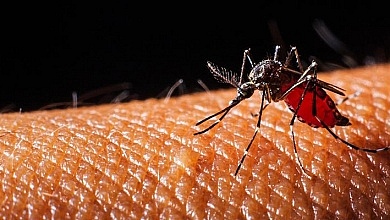
Dominica Reports End of Major Outbreak, Monitors Dengue and Leptospirosis Risks
The Ministry of Health, Wellness and Social Services in Dominica is ramping up its disease surveillance efforts as the rainy season intensifies. Health authorities are monitoring three public health concerns: leptospirosis, dengue fever, and the recently concluded gastroenteritis outbreak, which had gripped the country since January.
According to National Epidemiologist Dr. Shalauddin Ahmed, Dominica has officially emerged from its largest gastroenteritis outbreak in nearly two decades. The outbreak began on January 5, 2025, and was declared over as of April 19. The country recorded 1,679 confirmed cases, representing 2.4% of the national population.
“This makes it the most significant gastroenteritis outbreak Dominica has experienced in the past 18 years,” Dr. Ahmed stated during a recent Ministry of Health briefing. In comparison, the country typically reports an average of 1,137 cases per year, and even the post-Hurricane Maria outbreak in 2017–2018 only reached 1,509 cases. The 2022 total, by contrast, was just 122.
58% of the reported cases involved children aged 0 to 14, and females made up the same proportion. The outbreak affected 124 communities, with the Roseau Health District being the most impacted. Ninety-two individuals required hospitalisation, though primarily for rehydration and supportive care. Dr. Ahmed confirmed no deaths were reported, and extensive laboratory testing ruled out several major viral and bacterial agents.
Meanwhile, the Ministry remains alert for leptospirosis and dengue, two diseases expected to rise during the rainy season. As of May 2025, Dominica has recorded seven suspected leptospirosis cases, including one fatality, and 147 suspected cases of dengue, with one laboratory-confirmed positive.
Leptospirosis, a bacterial illness transmitted through contact with water contaminated by the urine of infected animals, poses a high risk for agricultural workers and those in flood-prone communities. Symptoms include high fever, muscle aches, vomiting, and sometimes jaundice. Dengue, spread by Aedes aegypti mosquitoes, often causes high fever, joint pain, and headaches, and can become severe if untreated.
The Ministry urges residents to take preventative measures such as:
- Eliminating mosquito breeding grounds (standing water),
- Using mosquito repellents and bed nets,
- Wearing waterproof boots and gloves in flood-prone or agricultural areas,
- And promptly seek medical care for symptoms linked to either disease.
Health authorities continue to collaborate with local councils and community leaders to implement education campaigns, cleanup drives, and vector control programs to minimise disease spread during the rainy season.
This article is copyright © 2025 DOM767








